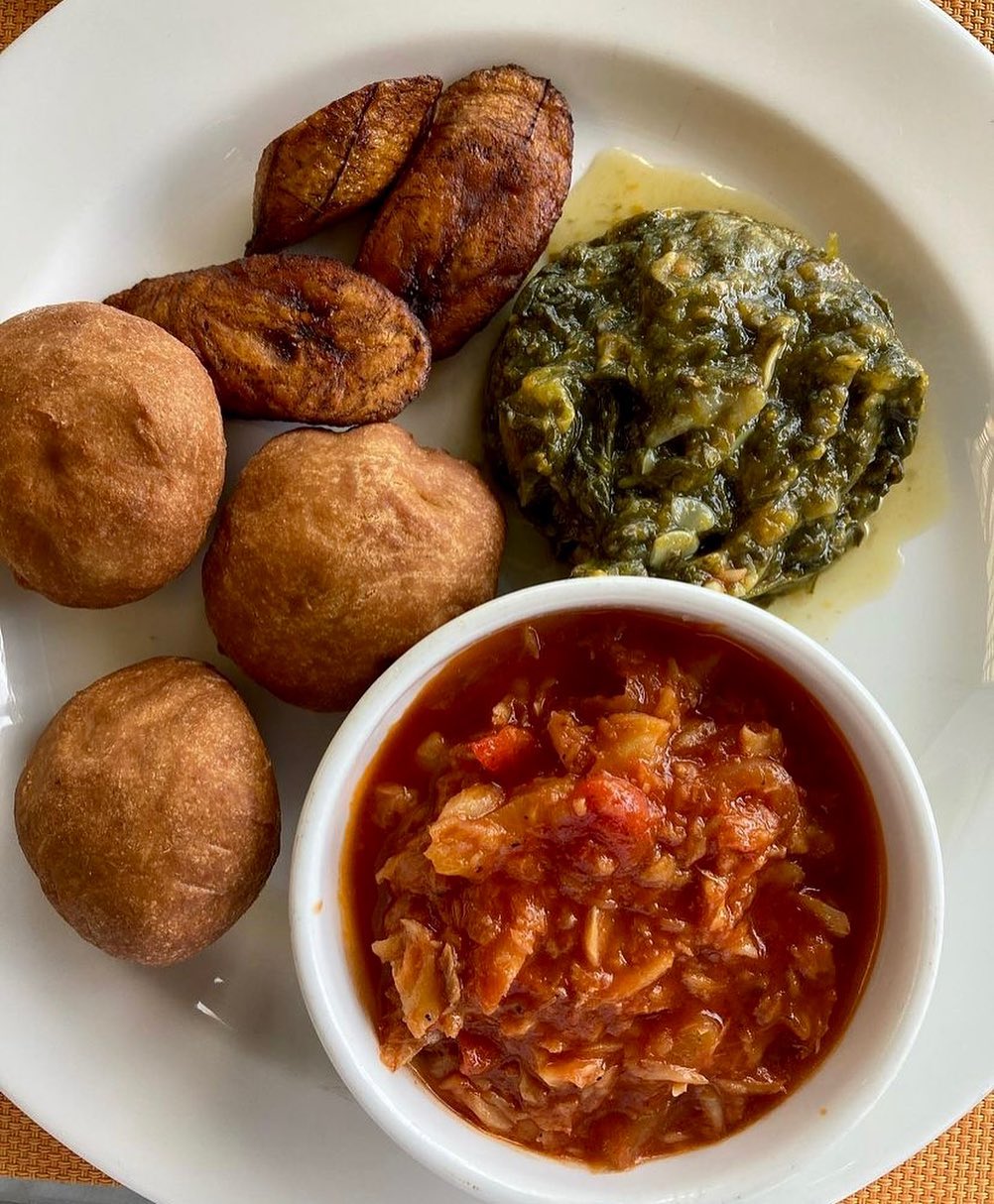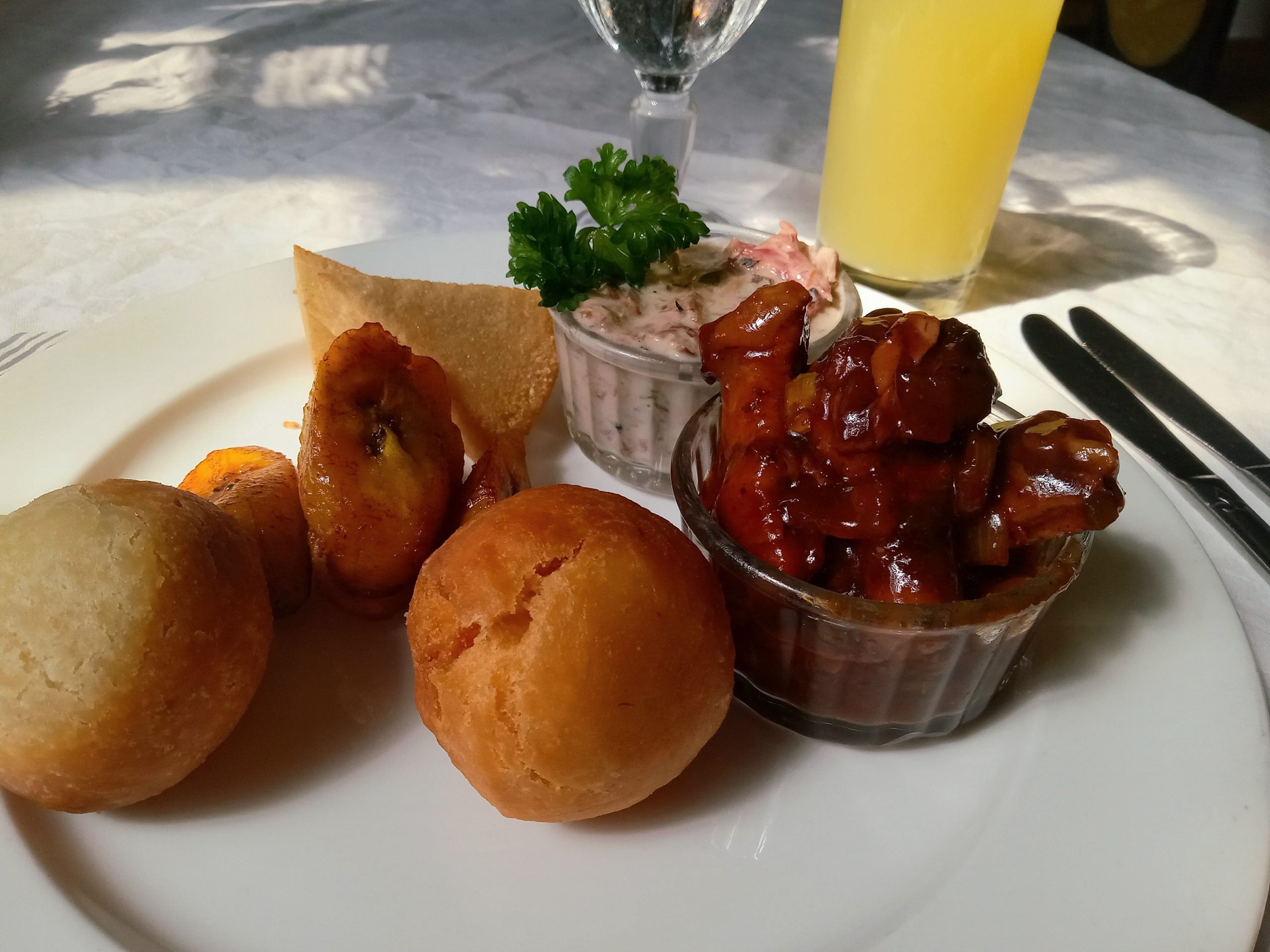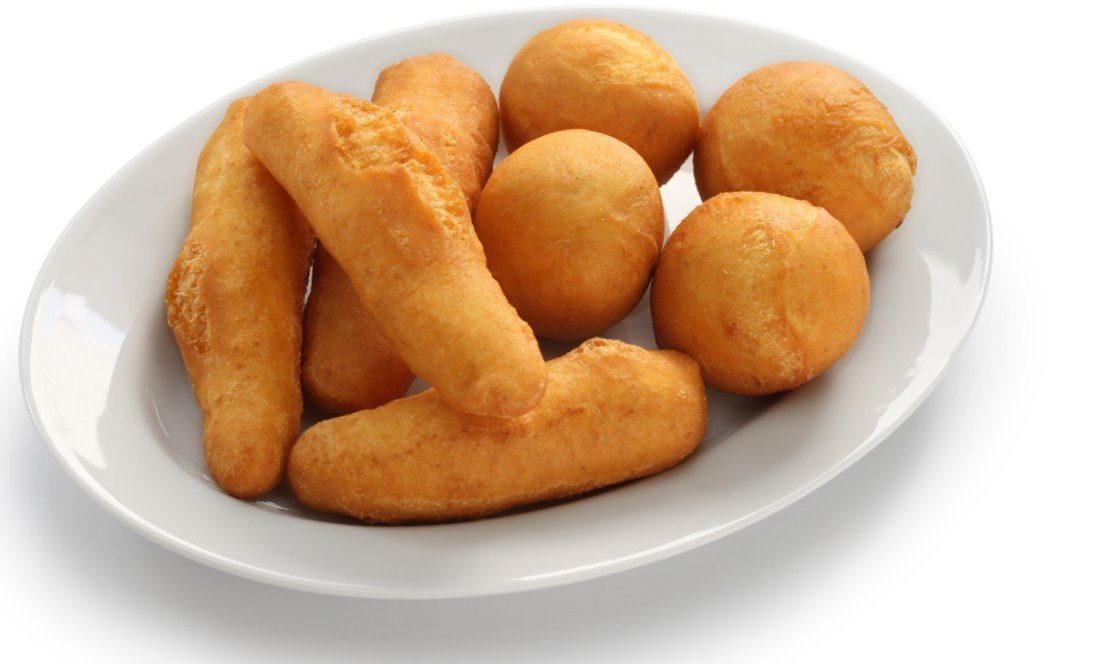In the heart of the Caribbean, a humble yet irresistible bread has captured the hearts and palates of generations. Jamaican Johnny Cakes, once known as “Journey Cakes,” have a storied history that traces back to the island’s rich culinary tapestry. These golden, puffy discs of fried dough were originally crafted as portable sustenance for travelers embarking on long journeys, a testament to their enduring appeal and versatility.
A Voyage Through Time and Tradition
The origins of Johnny Cakes can be traced to the indigenous peoples of the Americas, who shared their culinary wisdom with European settlers in the New England region. As these recipes migrated southward, they found a welcoming home in the Caribbean, where they were embraced and adapted to suit local tastes and ingredients.
Over time, Johnny Cakes became an integral part of Jamaican culture, a beloved accompaniment to iconic dishes like Ackee and Saltfish. Their simplicity and ability to transcend social boundaries made them a unifying force, enjoyed by all walks of life, from humble homes to upscale eateries.
The Art of Jamaican Johnny Cake Making
At its core, the art of crafting Jamaican Johnny Cakes lies in the harmonious union of a few simple ingredients and a well-honed technique. These golden morsels are a testament to the adage that sometimes, the most extraordinary flavors emerge from the humblest of beginnings.
The Essential Ingredients
The traditional recipe for Jamaican Johnny Cakes calls for a modest medley of all-purpose flour, baking powder, sugar, salt, and water. It’s a masterclass in simplicity, where the true magic lies in the hands of the baker and the careful balance of these unassuming components.
Flour: The Foundation
All-purpose flour serves as the backbone of Johnny Cakes, providing the structure and texture that defines these fried delights. While some recipes may incorporate self-rising flour for added convenience, purists swear by the time-honored tradition of sifting and aerating the flour to achieve the perfect crumb.
Leavening Agents: The Rise to Perfection
Baking powder plays a crucial role in creating the signature puffiness that sets Johnny Cakes apart from their flat counterparts. This unassuming ingredient acts as a leavening agent, allowing the dough to rise and develop those coveted air pockets that lend a delightful lightness to each bite.
Sugar and Salt: The Flavor Enhancers
While sugar and salt may seem like mere supporting actors in this culinary production, their roles are far from insignificant. A judicious pinch of sugar adds a subtle sweetness that complements the savory flavors, while salt acts as a flavor enhancer, bringing out the nuances of the other ingredients.
Water: The Binding Force
Water is the unsung hero that brings the dough together, binding the dry ingredients into a cohesive and pliable mass. The key lies in striking the perfect balance, adding just enough water to create a soft, workable dough without compromising its structural integrity.
The Kneading Technique
Once the ingredients have been combined, the real artistry begins with the kneading process. Jamaican cooks have perfected a unique kneading technique that ensures the dough remains light and airy, yet sturdy enough to withstand the rigors of frying.
Gentle hands and a rhythmic motion are essential, as the dough is kneaded and folded upon itself, allowing the gluten strands to develop and create that coveted, pillowy texture. This step is a true test of patience and skill, as overzealous kneading can lead to tough, dense Johnny Cakes – a culinary sin in the eyes of discerning Jamaican palates.
The Frying Process: A Dance of Heat and Oil
The frying process is where the magic truly unfolds, transforming humble dough into golden, crispy-on-the-outside, fluffy-on-the-inside Johnny Cakes. It’s a delicate dance between heat and oil, where precision and timing reign supreme.
The Perfect Frying Temperature
Achieving the ideal frying temperature is a critical factor in the success of Jamaican Johnny Cakes. Too hot, and the exterior will burn before the interior has a chance to cook through; too cool, and the dough will absorb excess oil, resulting in a greasy, unappetizing texture.
Experienced cooks have honed their instincts, relying on visual cues and the gentle sizzle of the oil to gauge the perfect moment to introduce the dough. For those seeking a more scientific approach, a temperature range of 300°F to 315°F (149°C to 157°C) is generally considered optimal for frying Johnny Cakes.
The Art of Frying
Once the oil is at the ideal temperature, the carefully shaped dough balls are gently lowered into the hot oil, taking care not to overcrowd the pan. This ensures that each Johnny Cake has ample space to puff up and achieve that coveted golden hue.
As the dough sizzles and dances in the oil, a watchful eye is required to monitor the cooking process. After a few minutes, when the underside has achieved a rich, golden-brown color, it’s time to gently flip the Johnny Cakes, allowing the other side to cook to perfection.
The Cooling Process
When the Johnny Cakes have reached their peak of golden, crispy perfection, they are carefully removed from the oil and transferred to a wire rack or paper towel-lined plate to cool and crisp up even further. This crucial step ensures that any excess oil is drained away, leaving behind a light, airy interior encased in a delightfully crunchy exterior.
Stacking the freshly fried Johnny Cakes is strictly forbidden, as the residual steam can compromise their coveted crispness. Instead, they are left to cool individually, allowing each one to bask in its well-deserved glory.
Serving Suggestions: A Versatile Accompaniment
While Jamaican Johnny Cakes are often celebrated as a beloved breakfast staple, their versatility extends far beyond the morning meal. These golden discs of deliciousness can seamlessly accompany a wide range of dishes, acting as a delightful canvas for bold flavors and savory toppings.
Breakfast Bliss
 No Jamaican breakfast spread would be complete without a basket of freshly fried Johnny Cakes gracing the table. Paired with iconic dishes like Ackee and Saltfish, these fluffy morsels serve as the perfect vehicle for sopping up the rich, flavorful sauces and juices.
No Jamaican breakfast spread would be complete without a basket of freshly fried Johnny Cakes gracing the table. Paired with iconic dishes like Ackee and Saltfish, these fluffy morsels serve as the perfect vehicle for sopping up the rich, flavorful sauces and juices.
For those seeking a heartier start to the day, Johnny Cakes can be stuffed with savory fillings like smoked herring or ackee before frying, creating a portable and satisfying meal on the go.
Savory Sides and Snacks
Beyond their breakfast glory, Jamaican Johnny Cakes can easily transition into the realm of savory sides and snacks. Served alongside hearty stews or curries, they provide a welcome respite from the bold flavors, acting as a delightful sponge for soaking up the aromatic sauces.
For a quick and satisfying snack, Johnny Cakes can be split open and generously slathered with garlic butter, smoked herring paste, or even a dollop of spicy jerk sauce, creating a handheld treat that’s sure to tantalize taste buds.
Sweet Indulgences

While traditionally savory, Jamaican Johnny Cakes can also venture into the realm of sweet indulgences. Drizzled with a touch of honey or dusted with powdered sugar, these fried delights take on a delightful dessert-like quality, perfect for satisfying those occasional cravings for something sweet.
For a truly decadent treat, Johnny Cakes can be stuffed with sweetened coconut or fruit preserves before frying, creating a delightful fusion of textures and flavors that will have taste buds dancing with delight.
Variations and Adaptations
Like any beloved culinary tradition, Jamaican Johnny Cakes have spawned a multitude of variations and adaptations, each reflecting the unique tastes and cultural influences of different regions and households.
Regional Twists
While the basic recipe remains largely consistent across Jamaica, certain regions have put their own spin on these beloved fried dumplings. In some areas, coconut milk or pumpkin may be incorporated into the dough, adding a subtle tropical flair and richness to the finished product.
In other parts of the island, Johnny Cakes may be seasoned with aromatic spices like cinnamon or nutmeg, lending a warm, fragrant note to complement the crispy exterior and fluffy interior.
Dietary Accommodations
In today’s health-conscious world, even beloved classics like Jamaican Johnny Cakes have been adapted to cater to various dietary needs and preferences. Gluten-free and vegan versions have emerged, substituting the traditional wheat flour with gluten-free alternatives like rice flour or cassava flour, and swapping out the butter for plant-based oils or vegan margarine.
These adaptations not only allow those with dietary restrictions to enjoy the beloved flavors of Johnny Cakes but also introduce new dimensions of flavor and texture to this time-honored treat.
The Cultural Significance of Johnny Cakes
Beyond their culinary appeal, Jamaican Johnny Cakes hold a profound cultural significance, serving as a bridge between generations and a symbol of resilience and resourcefulness.
A Unifying Force
In a nation rich with diversity, Johnny Cakes have transcended social and economic boundaries, becoming a beloved staple enjoyed by all walks of life. From humble street vendors to upscale restaurants, these golden discs of deliciousness have brought people together, fostering a sense of community and shared identity.
A Taste of Tradition
For many Jamaicans, the aroma of frying Johnny Cakes is inextricably linked to cherished childhood memories and family gatherings. These humble breads have been passed down through generations, carrying with them the stories, techniques, and traditions that have shaped Jamaica’s culinary landscape.
In a world that often moves at a dizzying pace, the act of crafting Johnny Cakes serves as a grounding ritual, connecting the present with the rich tapestry of the past and ensuring that these beloved flavors endure for generations to come.
A Symbol of Resilience
The history of Johnny Cakes is a testament to the resilience and resourcefulness of the Jamaican people. Born out of necessity, these portable breads were a practical solution for travelers embarking on long journeys, providing sustenance and nourishment in times of scarcity.
Today, Johnny Cakes continue to symbolize the ability to create something extraordinary from humble beginnings, a reminder that even the simplest of ingredients can be transformed into culinary magic when infused with skill, tradition, and a touch of love.
Jamaican Johnny Cakes Recipe Card

Ingredients
- 3 cups all-purpose flour
- 1 tablespoon baking powder
- 4 tablespoons granulated sugar
- 1/2 teaspoon salt
- 1 tablespoon unsalted butter, at room temperature
- 1/2 cup whole milk (or any milk of your choice)
- 1/2 cup water
- 2 cups cooking oil for frying (vegetable, canola, or peanut oil)
Instructions
Make the Dough:
- In a large mixing bowl, whisk together the flour, baking powder, sugar, and salt.
- Using your fingers, work the butter into the dry ingredients until the mixture resembles coarse crumbs.
- Create a well in the center of the dry ingredients.
- Gradually pour in the milk and water, stirring with a fork until a shaggy dough forms.
- Turn the dough onto a lightly floured surface and knead gently for a few minutes until smooth and elastic.
- Cover the dough with a damp cloth and let it rest for 30 minutes at room temperature.
Prepare for Frying:
- Divide the dough into 12-15 equal portions and shape each into a ball.
- Using the palm of your hand, gently flatten each ball into a round disc, about 1/2 inch thick.
- In a large skillet or Dutch oven, heat the cooking oil over medium heat until it reaches a temperature of 300°F to 315°F (149°C to 157°C).
Fry the Johnny Cakes:
- Working in batches to avoid overcrowding, carefully lower the flattened dough discs into the hot oil.
- Fry for 2-3 minutes per side, or until golden brown and puffed up.
- Use a slotted spoon or tongs to flip the Johnny Cakes and ensure even cooking.
- Once cooked through, transfer the fried Johnny Cakes to a wire rack or paper towel-lined plate to drain excess oil.
Serve and Enjoy:
- Serve the freshly fried Johnny Cakes warm, alongside your favorite Jamaican dishes like Ackee and Saltfish, stews, or curries.
- For a sweet treat, drizzle with honey or dust with powdered sugar.
- Enjoy the crispy exterior and fluffy interior of these beloved Jamaican fried dumplings!
Notes
- For a vegan version, substitute the butter with vegan margarine or coconut oil, and use plant-based milk instead of dairy milk.
- Experiment with different fillings like smoked herring, ackee, or sweetened coconut before frying for an extra burst of flavor.
- Avoid stacking the fried Johnny Cakes immediately after cooking, as this can cause them to become soggy. Allow them to cool individually for maximum crispness.
- Leftover Johnny Cakes can be reheated in a dry skillet or toaster oven to regain their crispy texture.
The Enduring Legacy of Jamaican Johnny Cakes
As the sun sets over the Caribbean, the aroma of frying Johnny Cakes wafts through the streets, a comforting and familiar scent that has become woven into the fabric of Jamaican culture. These humble fried dumplings have transcended their humble beginnings, evolving into a beloved culinary icon that celebrates the island’s rich heritage and resilient spirit.
From the bustling markets of Kingston to the quaint seaside villages, Johnny Cakes have brought people together, fostering a sense of community and shared identity. They have graced the tables of generations, serving as a delicious canvas for bold flavors and cherished family recipes.
In a world that often moves at a dizzying pace, the act of crafting Johnny Cakes serves as a grounding ritual, a connection to the past, and a reminder of the simple pleasures that can be found in the most unassuming of ingredients.
Conclusion
So, whether you’re a lifelong devotee or a newcomer to the world of Jamaican cuisine, embrace the irresistible allure of Johnny Cakes. Savor their crispy exterior and fluffy interior, and let each bite transport you to the sun-drenched shores of this Caribbean paradise, where culinary traditions are deeply rooted and flavors are celebrated with every mouthful.
For recommendations on some of the best times to visit Jamaica, you can check out our guide here.
—
If you’re traveling to Jamaica alone, ensure you take all the necessary measures to keep safe. Read about how you can stay safe while visiting Jamaica. If you decide to visit any resort, be sure to tag us in your photos and videos @resortcaribbean, and follow our socials: Instagram, Facebook, YouTube.






![What You Need to Know before Visiting Azul Beach Resort Negril Jamaica Gourmet All-Inclusive [Resort Review] Azul Beach Resort Pool](https://resortcaribbean.co/wp-content/uploads/2021/09/20210828_091210-2-100x70.jpg)
![Visiting Ocean Coral Spring – One of Jamaica’s Most Famous Resorts [Resort Review] Visiting Ocean Coral Spring - One of Jamaica's Most Famous Resorts](https://resortcaribbean.co/wp-content/uploads/2021/11/20211106_155809-scaled-e1716408051807-100x70.jpg)